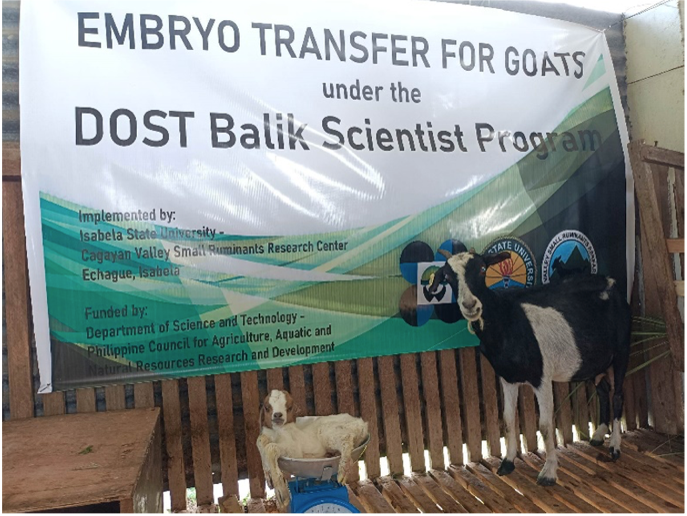On June 23, 2023, the Isabela State University-Cagayan Valley Small Ruminants Research Center (ISU-CVSRRC) witnessed the kidding of Doe 280, a recipient of embryo transfer (ET) technology. A doe is a female goat. The kid or the offspring is a male Boer.
Embryo transfer is a technique where embryos are collected from a superior female donor and transferred to a recipient or surrogate dam, which carries the fetus for the remainder of the pregnancy. Its main advantage is the increased number of offspring that can be generated from each female.
The ET activity at ISU-CVSRRC is a project under the Balik Scientist Program of the Department of Science and Technology (DOST-BSP).
Dr. Miguel Mervin Pajate, a veterinarian and ET expert residing in Dubbo, Australia was tapped to serve as a Balik Scientist through the Philippine Council for Agriculture, Aquatic and Natural Resources Research and Development of the Department of Science and Technology (DOST-PCAARRD).
The engagement of Dr. Pajate with ISU is a continuation of the University’s program on artificial insemination (AI). With the presence of the support facilities funded by DOST-PCAARRD to run the ET, ISU-CVSRRC proposed for the development of ET protocols that suit local conditions in the Philippines.
Under the supervision of Dr. Pajate, ISU researchers were trained on laparoscopic artificial insemination and ET; selection and preparation of the donor and recipient does; superovulation of the embryos; and embryo collection, grading, storage, and thawing.
An Upgraded Anglo-Nubian doe served as a recipient of embryos from a purebred Boer buck and a 75% upgraded Boer doe on January 27, 2023.
With this new development, the protocol that was used in this activity will soon be farmed-out to benefit more raisers.

